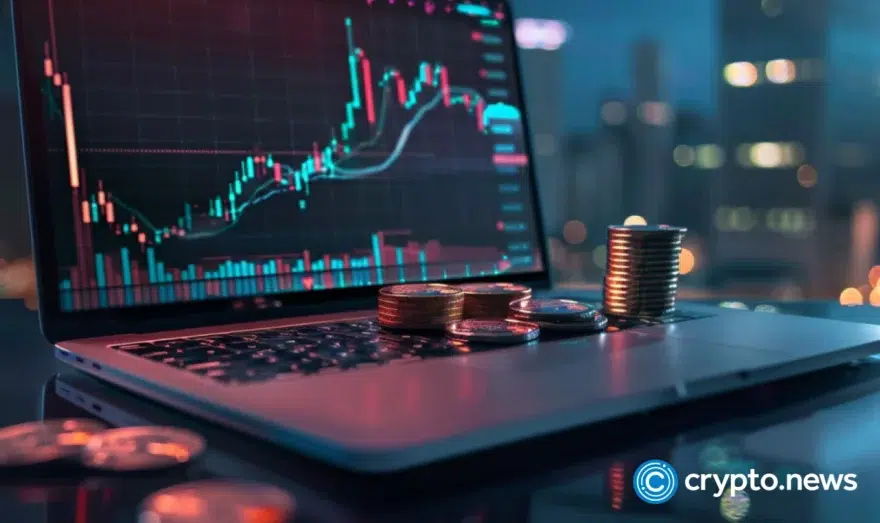Singapore unveils regulatory framework for single-currency stablecoins

The Monetary Authority of Singapore (MAS) recently unveiled a regulatory framework aimed at enhancing the stability of single-currency stablecoins.
The framework, according to Bloomberg, is set to be applicable to non-bank issuers of single-currency stablecoins linked to the Singapore dollar or any G10 currencies, provided their circulation surpasses S$5 million.
Singapore’s MAS floats fresh stablecoin regulations
Singapore has implemented comprehensive measures to regulate stablecoins, aiming to establish a more transparent and accountable framework for their operations within the country.
The MAS has now finalized a regulatory structure with the primary objective of ensuring a high degree of value stability for regulated stablecoins in Singapore. This framework is designed to enhance the credibility of stablecoins as a digital medium of exchange and a bridge between fiat and digital asset ecosystems.
The MAS’s stablecoin regulatory framework encompasses requirements concerning value stability, capital, redemption at par, and disclosure of audit results to users.
Only stablecoin issuers meeting all the specified criteria can apply to MAS for the recognition and designation of their stablecoins as “MAS-regulated stablecoins.”
This designation serves as a clear identifier for users, distinguishing MAS-regulated stablecoins from other digital payment tokens, including stablecoins not subject to MAS’s regulatory framework.
These regulatory efforts by MAS align with a broader initiative to promote transparency and stability within the rapidly expanding stablecoin industry. The regulatory label not only ensures adherence to standards but also facilitates user differentiation between MAS-regulated stablecoins and other digital payment tokens operating outside MAS’s stablecoin regulatory framework.
Stablecoins, cryptocurrencies pegged to legal tender, find a conducive environment in Singapore due to thoughtful regulation and a pro-innovation atmosphere. The MAS’s regulatory approach aims to facilitate stablecoins’ use as a reliable digital medium of exchange, acting as a bridge between fiat and digital asset ecosystems.
Tokens meeting all the specified requirements will be acknowledged by the regulator, establishing a clear distinction between regulated and unregulated tokens.
Traditionally, stablecoins like USDT and USDC have served as the foundation for cryptocurrency trading, enabling traders to navigate various digital coins without the need to convert them back into fiat currency.
While stablecoin issuers assert their versatility for purposes like remittances, criticisms have surfaced regarding the transparency of their held reserves. Singapore seeks to enhance industry clarity in response to these concerns.
Circumventing crypto risks
According to a U.S. research report, unsuspecting victims reported using Bitcoin (70%), Tether (10%), and Ether (9%) as the primary cryptocurrencies for payments to scammers.
Last year, the MAS advised against investing in cryptocurrencies due to the perceived high risks, exemplified by notable failures like the collapse of TerraUSD (UST) and Luna tokens.
In the U.S., regulators have identified investments linked to cryptocurrencies and digital assets as a primary threat to investors, citing the lack of government backing and the potential for significant value fluctuations.
The Securities and Exchange Commission (SEC) has also taken enforcement actions against individuals and entities involved in fraudulent and unregistered crypto-asset offerings, underscoring the importance of due diligence and regulatory compliance in cryptocurrency investments.
The SEC’s enforcement actions also extend to charges against SafeMoon LLC and its executive team, alleging fraud and the unregistered offering of crypto securities. These actions led to substantial market capitalization losses and the misappropriation of investor funds, amounting to billions.
The SEC’s Crypto Assets and Cyber Unit, within the Division of Enforcement, has initiated over 80 enforcement actions pertaining to fraudulent and unregistered crypto asset offerings and platforms, resulting in monetary relief exceeding $2 billion.
These regulatory efforts by global regulators are geared towards safeguarding investors in the crypto markets. The focus of their investigations encompasses securities law violations related to crypto asset offerings, exchanges, lending and staking products, decentralized finance platforms, non-fungible tokens, and stablecoins.
The aim is to ensure a secure and compliant environment within the crypto space, addressing various aspects of the industry to protect investor interests.

















